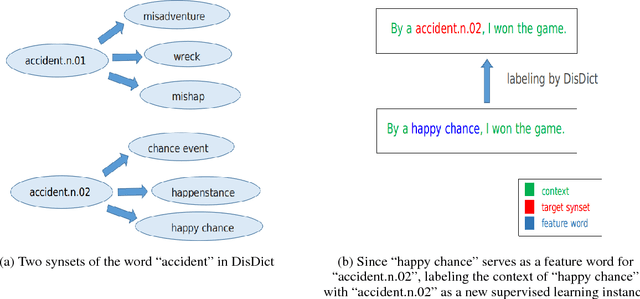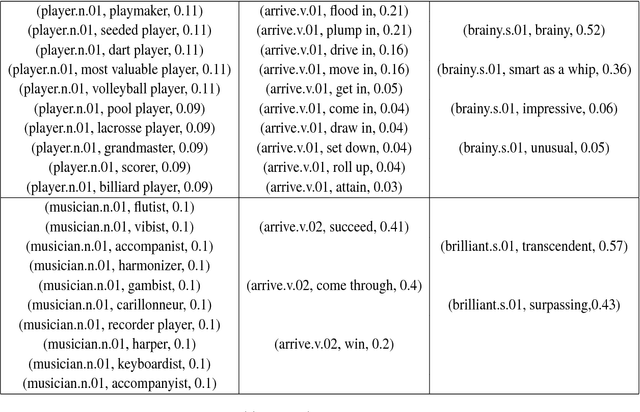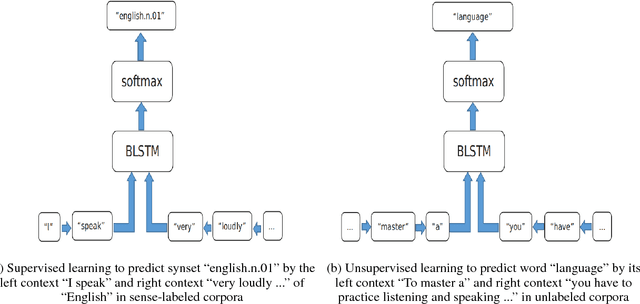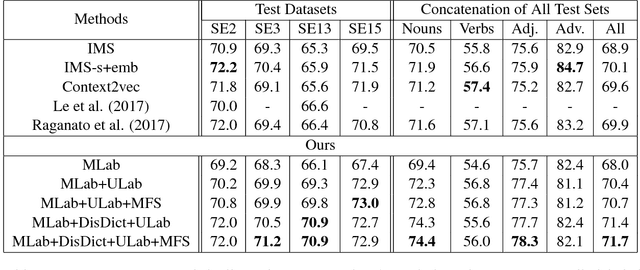KDSL: a Knowledge-Driven Supervised Learning Framework for Word Sense Disambiguation
Paper and Code
Sep 24, 2018



We propose KDSL, a new word sense disambiguation (WSD) framework that utilizes knowledge to automatically generate sense-labeled data for supervised learning. First, from WordNet, we automatically construct a semantic knowledge base called DisDict, which provides refined feature words that highlight the differences among word senses, i.e., synsets. Second, we automatically generate new sense-labeled data by DisDict from unlabeled corpora. Third, these generated data, together with manually labeled data and unlabeled data, are fed to a neural framework conducting supervised and unsupervised learning jointly to model the semantic relations among synsets, feature words and their contexts. The experimental results show that KDSL outperforms several representative state-of-the-art methods on various major benchmarks. Interestingly, it performs relatively well even when manually labeled data is unavailable, thus provides a potential solution for similar tasks in a lack of manual annotations.
 Add to Chrome
Add to Chrome Add to Firefox
Add to Firefox Add to Edge
Add to Edge